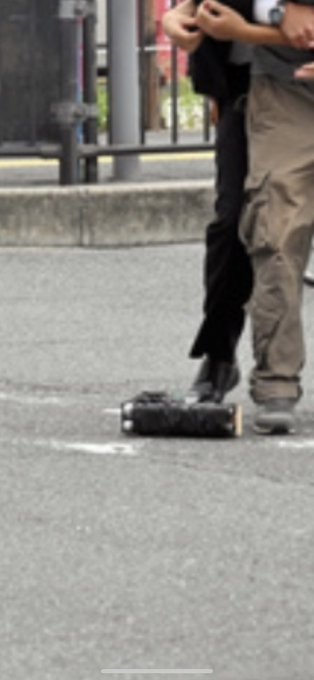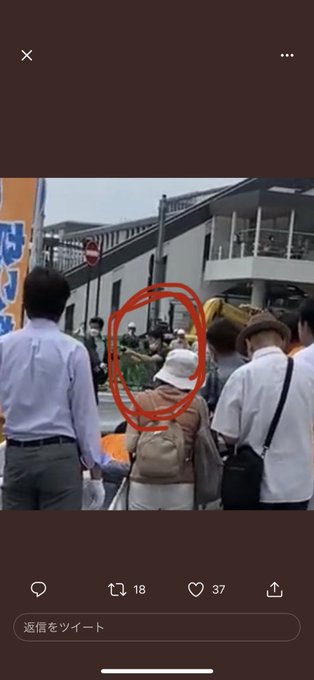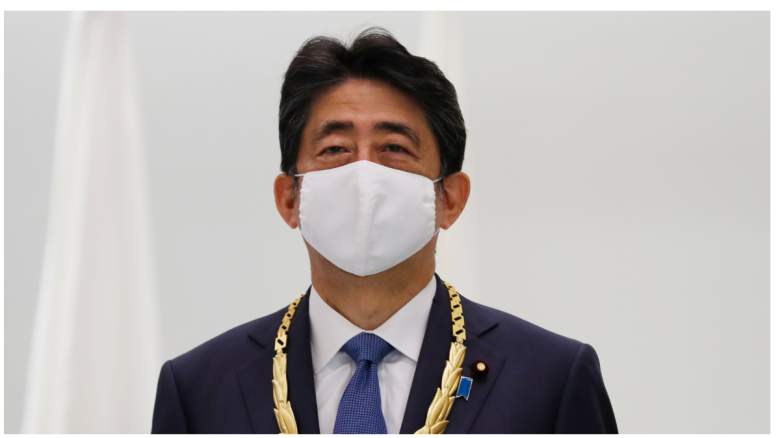
Shinzo Abe, the former prime minister of Japan, has been shot, according to NHK, a Japanese broadcaster.
Abe, 67, one of Japan’s most prominent politicians, died from his injuries, NHK reported, after more than 20 doctors spent four hours trying to save his life.
According to Kyodo News, the cause of death was blood loss as the wound “was deep enough to reach his heart.”
Video emerged from the scene. The gunman may have been wielding a homemade shotgun.
Video emerged of the moment Abe was shot.
In some videos, the suspect could be seen.
The accused suspect is Yamagami Testuya. His name is given by some sites as Testuya Yamagami.
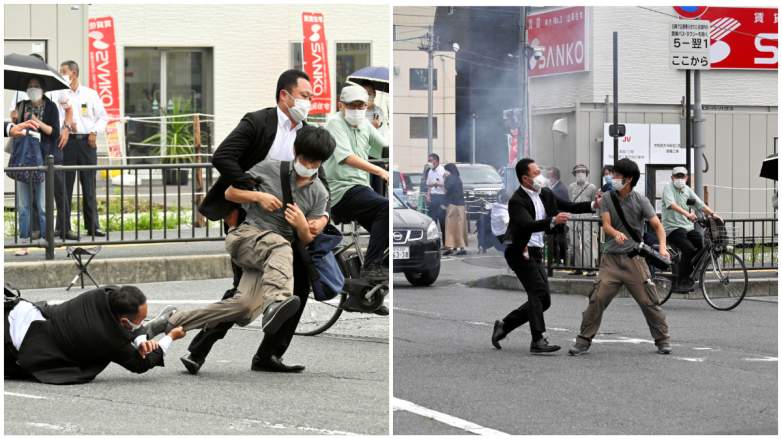
GettyTetsuya Yamagami
NHK has been the leading authority out of Japan on reports of the Abe shooting.
“Former Japanese Prime Minister Abe Shinzo has been sent to a hospital and appears to show no vital signs after reportedly being shot in the city of Nara in western Japan, according to a local fire department. An NHK reporter says she heard what sounded like two gunshots and saw Abe bleeding,” NHK reported.
He was Japan’s longest serving prime minister before leaving office in 2020, the Guardian reported.
You can see additional video below.
Here’s what you need to know:
Abe Was Shot in the City of Nara, Reports Say
The Japanese site Asahi reported that, at around 11:30 a.m. on July 8, 2022, in Japan, “a gunshot-like sound was heard twice in front of Kintetsu Yamato-Saidaiji Station in Nara City.”
Abe, “who was giving a street speech in front of the station, collapsed and was transported by ambulance,” the site reported.
“A man who appears to have fired has been arrested. According to police officials, Mr Abe is in a state of cardiopulmonary arrest.”
The site further reported that “At least two shotgun-like shotguns were fired behind Mr. Abe. Something like a gun was confiscated at the scene. According to investigators, the man is Tetsuya Yamagami (41) from Nara City. The current offender was arrested on suspicion of attempted murder.”
Asahi reported that the suspect shot twice, hitting Abe in the chest and causing him to go into “cardiopulmonary arrest.”
Abe was shot a few minutes after starting his speech, according to Asahi, which reported that the suspect was “standing behind” Abe, who collapsed, with blood “flowing from his chest.”
According to Bloomberg, citing further reports by NHK, Abe was “apparently shot in the chest,” and the suspect was caught at the scene. The suspect’s name and motive were not released but he “appeared to be a young or middle-aged man,” Bloomberg reported.
“Former Prime Minister Shinzo Abe has been shot in the city of Nara, NHK reports,” the Japan Times tweeted on the evening of July 7, 2022.
According to the Japan Times, he was attacked by a man from behind.
Other sites stopped shot of saying that Abe was shot. Hindustan Times reported that Abe had collapsed while campaigning in Nara, which is in western Japan, and that shots were heard.
Abe was in cardiac arrest, according to Kyodo News. According to the Guardian, also citing NHK, the weapon was a shotgun.
Abe Was Giving a Speech When Attacked, Reports Say
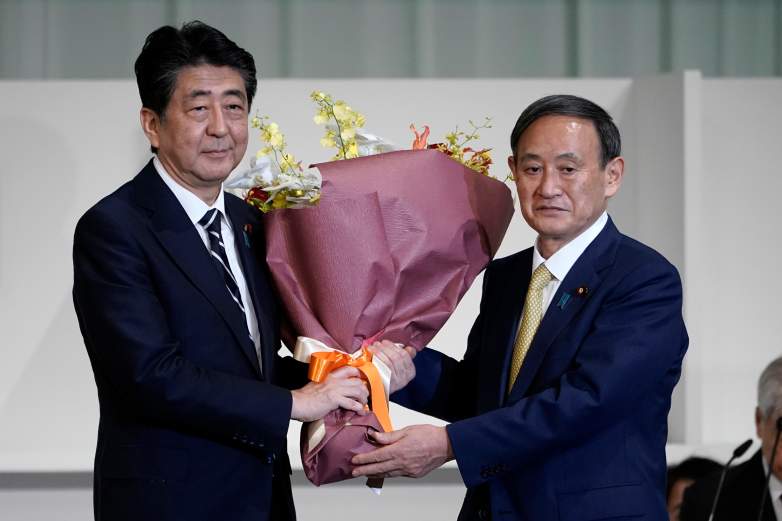
GettyChief Cabinet Secretary Yoshihide Suga (R) presents flowers to Japan’s Prime Minister Shinzo Abe after Suga was elected as new head of Japan’s ruling party at the Liberal Democratic Party’s (LDP) leadership election on September 14, 2020 in Tokyo, Japan.
Daily Mail reported that Abe, 67, was giving a speech when he was attacked and shot “by an unidentified man.” His condition is not clear. He was rushed to a hospital, according to Daily Mail.
Bloomberg reported that the shooting occurred on the street around 11:30 a.m. on Friday in Japan.
According to Britannica, Shinzo Abe, who was born in Tokyo in 1954, was twice Japanese prime minister, from 2006-07 and 2012-20.
“Abe was a member of a prominent political family. His grandfather Kishi Nobusuke served as Japan’s prime minister from 1957 to 1960, and his great-uncle Sato Eisaku held the same post from 1964 to 1972,” the biography states.
“After graduating from Seikei University in Tokyo (1977), Abe moved to the United States, where he studied political science at the University of Southern California, Los Angeles. In 1979 he returned to Japan and joined Kōbe Steel, Ltd. He subsequently became active in the Liberal-Democratic Party (LDP), and in 1982 he began working as secretary to his father, Abe Shintaro, who was Japan’s foreign minister.”
The site adds:
A conservative, Abe sought to strengthen ties with the United States and pursue a more assertive foreign policy. Abe supported United Nations sanctions against North Korea following that country’s nuclear test and imposed a set of unilateral sanctions on North Korea that included a ban on all visits to Japanese ports by North Korean vessels. He also pledged to revise the country’s postwar constitution, which placed severe restrictions on its military.
The Guardian reported that Abe’s speech came in advance of Sunday’s upper house elections in Japan.
READ NEXT: Learn More About James Caan’s Death & Family
